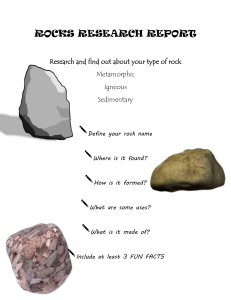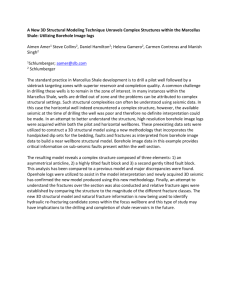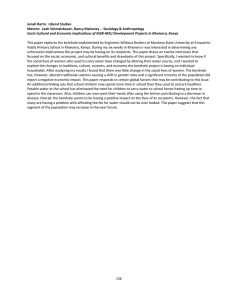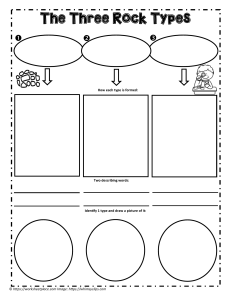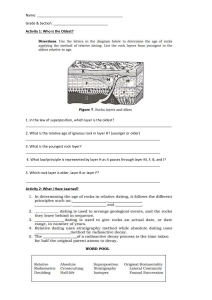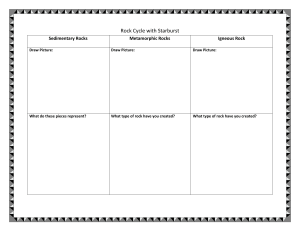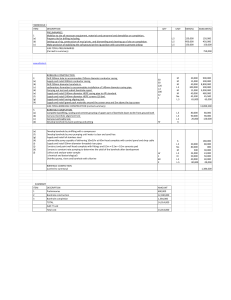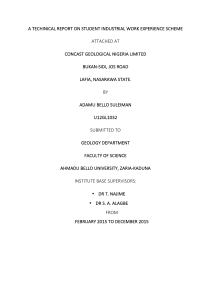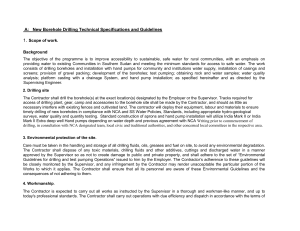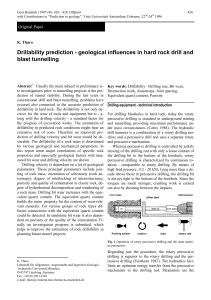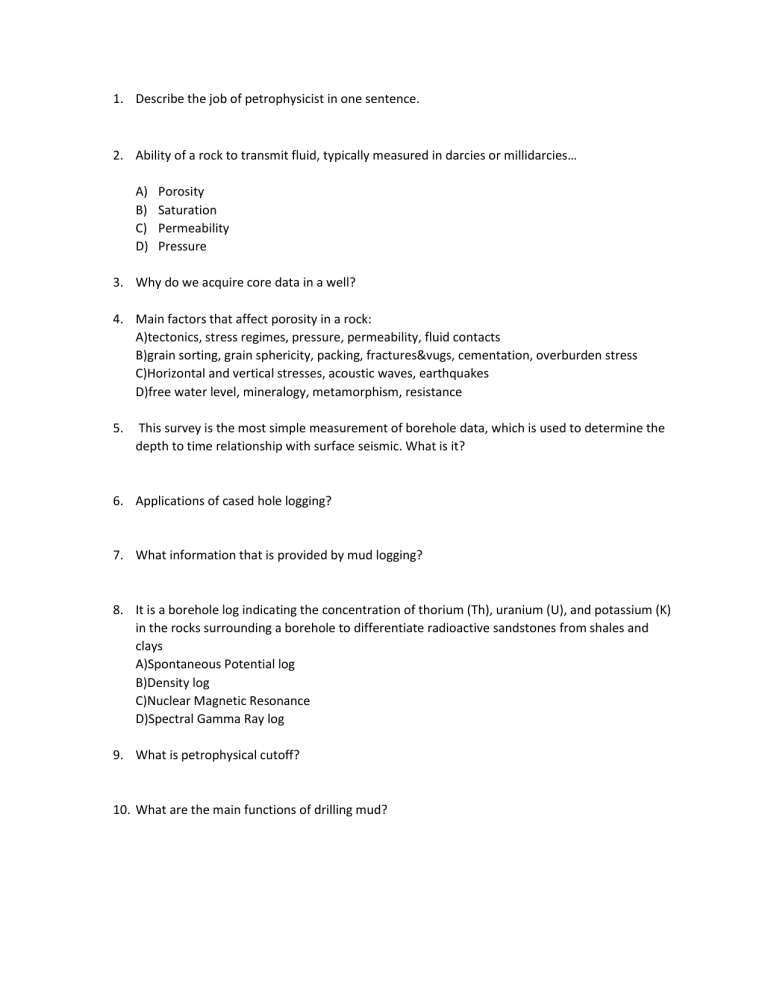
1. Describe the job of petrophysicist in one sentence. 2. Ability of a rock to transmit fluid, typically measured in darcies or millidarcies… A) B) C) D) Porosity Saturation Permeability Pressure 3. Why do we acquire core data in a well? 4. Main factors that affect porosity in a rock: A)tectonics, stress regimes, pressure, permeability, fluid contacts B)grain sorting, grain sphericity, packing, fractures&vugs, cementation, overburden stress C)Horizontal and vertical stresses, acoustic waves, earthquakes D)free water level, mineralogy, metamorphism, resistance 5. This survey is the most simple measurement of borehole data, which is used to determine the depth to time relationship with surface seismic. What is it? 6. Applications of cased hole logging? 7. What information that is provided by mud logging? 8. It is a borehole log indicating the concentration of thorium (Th), uranium (U), and potassium (K) in the rocks surrounding a borehole to differentiate radioactive sandstones from shales and clays A)Spontaneous Potential log B)Density log C)Nuclear Magnetic Resonance D)Spectral Gamma Ray log 9. What is petrophysical cutoff? 10. What are the main functions of drilling mud? 11. a rock containing oil or gas will have ___________ resistivity than the same rock completely saturated with salt water A) same B) higher C) lower D) cannot be compared 12. Describe working principle of neutron log in openhole 13. Why is it advantageous to measure formation pressure while drilling rather than by wireline after drilling? 14. When mudweight is lower than pore pressure, the well will be at risk of: A) Wellbore Instability B) Fracturing/losses C) Increased sustained casing pressure D) Kick/well control 15. What are the applications of acoustic logs obtained in openhole and casedhole? 16. Sketch horizontal stresses around borehole with respect to breakouts (wellbore collapse when mudweight is low) and fractures (formation fracturing when mudweight is higher than rock strength) 17. Why do we acquire Nuclear Magnetic Resonance logs in a well? 18. What wave Cannot propagate through liquids? 19. Describe the term anisotropy used in petrophysics 20. What is well log correlation used by geologist? Bonus question: What types of information is needed for geologist when planning a new well?
